UPSC IAS Toppers
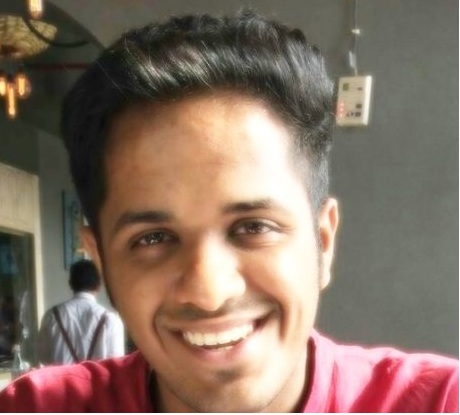 |
Name: | Pulkit Garg | ||
|---|---|---|---|---|
| Exam: | UPSC IAS 2015 | Rank: | 27 | |
| Attempt | 2nd | Year | 2015 | |
| Education | BTech Civil Engg - IIT Delhi | Current Job | IRS Officers | |
| Question | Answers |
|---|---|
| Do you Rely on Books or Internet | 70% internet and 30% Books. Electronic mode was used for making notes. |
| Preparation of History for prelims and mains | NCERT's and Bipan Chandra |
| Preparation of Geography for prelims and mains | NCERT's and GC Leong |
| Preparation of Culture for prelims and mains | NIOS+NCERT |
| Preparation of Environment for prelims and mains | NIOS+NCERT+Shankar IAS |
| Preparation of Current Affairs for prelims and mains | Indian express+PRSIndia+PIB |
| Tips for Cracking General studies Prelims | Mark all important rivers, tributaries, national parks, reserves, landmarks on maps |
| Tips for Cracking General studies Aptitude | Nothing |
| Are Mock Tests needed for prelims | No but practise solving papers and improve accuracy and compete with seniors and other candidates. Also solving within time limit is needed. |
| Tips for Mains English and Hindi language | Practised writing essays and solved last 4 years papers in 2 weeks before exams |
| Tips for Mains International Relations Questions | Internet |
| Any other tips | Prepare 2nd ARC Report, Chronicle lexicon for GS-Ethics paper, Economic survey + Past papers. Write answers with as many points as possible, Just one line intro and conclusion. Time managment is needed, underline headings and sub headings. |
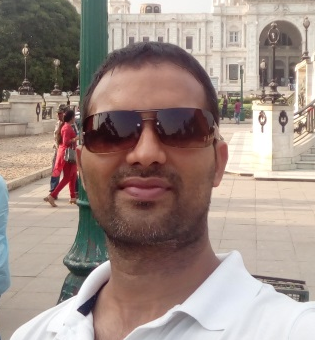 |
Name: | Nitin Sangwan | ||
|---|---|---|---|---|
| Exam: | UPSC IAS 2015 | Rank: | 28 | |
| Attempt | 4th | Year | 2015 | |
| Education | IIT Madras | Current Job | IRS C&E | |
| Question | Answers |
|---|---|
| Do you Rely on Books or Internet | Internet and online books are easier than carrying bulky books around also notes making is easy and convenient |
| Preparation of History for prelims and mains | NCERT books (read both new as well as older ones) are more than sufficient.and Bipan Chandra, new NCERTs, internet, last year’s papers and so on. |
| Preparation of Geography for prelims and mains | NCERTs (both old and new) and GC Leong |
| Preparation of Culture for prelims and mains | NIOS notes/book and the NCERT 11th class book is sufficient. |
| Preparation of Economy for prelims and mains | standard book like Ramesh Singh and Dutt and Sundaram. Apart from that, for current – any good newspaper like The Hindu or Indian Express is sufficient. |
| Preparation of Science for prelims | just newspapers like Indian express |
| Preparation of Environment for prelims and mains | NIOS+NCERT+Shankar IAS + Newspapers [Hindu/Indian express] for current developments |
| Preparation of Current Affairs for prelims and mains | Indian express+PRSIndia+PIB+ Newspaper is the only source. You may also read the India Book released by Government of India. |
| Tips for Cracking General studies Prelims | Mark all important rivers, tributaries, national parks, reserves, landmarks on maps |
| Tips for Cracking General studies Aptitude | There is only one strategy for all these – practice till you feel comfortable enough to attempt the actual exam. |
| Are Mock Tests needed for prelims | I never attended any mock tests for prelims or even mains. I don’t think that they are even necessary. They are often time consuming and are very unreasistically designed and their outcomes can be very frustrating. Just read past years papers of UPSC and practice those kind of questions yourself. That would be much more helpful. |
| Tips for Mains English and Hindi language | Practised writing essays and solved last 4 years papers in 2 weeks before exams , for Hindi read Vyakaran |
| Tips for Mains International Relations Questions | Internet |
| Tips for Polity Questions in mains and prelims | M Laxmikanth |
| Tips for Ethics Questions in mains | Ethics – by Donald Menzel, For ethics paper, follow your heart and try to explore as many options you can |
| Any other tips | I never prepared separately for the essay paper and always paid my greatest attention to GS papers. However, I tried to learn a few quotes, note down some interesting and catchy information and jot down some basic facts for use in essay.Most areas of mains are very generic and you have to use your common sense.Prepare 2nd ARC Report, Chronicle lexicon for GS-Ethics paper, Economic survey + Past papers. Write answers with as many points as possible, Just one line intro and conclusion. Time managment is needed, underline headings and sub headings. |
| Tips for Interviews | For interview – prime focus should be your DAF and the current affairs. Practise mock interviews with your relatives and friends to help you in refining some behavioral aspects (the way you sit, enter the room, greet, look at the board or answer the question). Doing it with your colleagues and friends can benefit you a lot as they know a lot of things about you which even you may not be knowing, but still can be asked in the interview. |
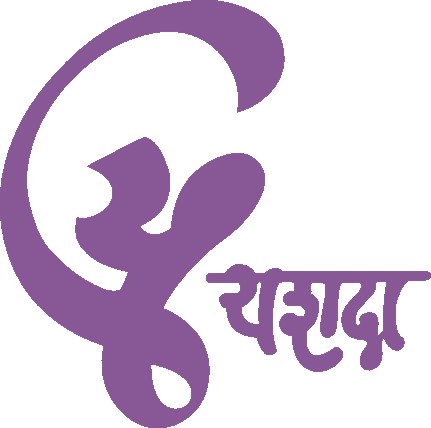 |
Name: | Ravindranath Patil | ||
|---|---|---|---|---|
| Exam: | UPSC IPS Officer | Rank: | ||
| Attempt | Year | |||
| Education | Current Job | IPS Officer + Jnana Prabodhini UPSC Interview Trainer | ||
| Question | Answers |
|---|---|
| What should be the attitude in interviews? | Interviews test the candidates attitude, skills and then knowledge with highest priority to attitude. |
| Qualities of An Interview Candidate |
|
| Cardinal Principles of Interview | Interview is an attitudinal battle. If u feel u can, u can. Interview is a performance test rather than a personality test. Interview is a selection process, and not an elimination process. |
| How to reply to questions |
|
| Tips for Confidence building before interview |
|
| Politeness: some tips | Always be polite to the panelists, respect them and be humble and apologize if proven wrong |
| Tips for better communication | Mug up important phrases and use below tips
|
State Bank of India PO/MT - Toppers
 |
Name: | Amit Chaudhari | ||
|---|---|---|---|---|
| Exam: | SBI PO 2014 | Rank: | N.A | |
| Attempt | N.A | Year | N.A | |
| Education | Current Job | SBI PO | ||
| Question | Answers |
|---|---|
| Do you Rely on Books or Internet | Internet and online mock tests and also internet for current affairs |
| Preparation strategy for prelims | The Prelims Exam of SBI PO will contain 100 questions carrying 100 marks and the time duration is 1 hour.The Questions are divided into 3 Sections Reasoning Quantitative Aptitude English. Hence practise and time management needed. |
| Preparation strategy for mains | The Mains Exam of SBI PO will contain 155 questions carrying 200 marks and the time duration is 180 minutes.The Questions are divided into 4 Sections.The Selection will be purely based on Mains Exam. And the Exam will contain the following Subjects: Reasoning & Computer Knowledge (60 marks). English Language (40 marks). Quantitative Aptitude ( 60 marks). General Awareness (40 marks). All Subjects in SBI PO Prelims and SBI PO Mains have sectional cutoff, so you should focus on every subject of SBI PO Prelims and mains Exam |
| Tips for beginners | There is no secret to success in SBI PO Exam. What you need is consistent efforts to excel in the SBI PO exam. The first and the most crucial step should be to make a proper day wise study plan for SBI PO 2016. |
| Are mock tests needed | give online mock test to Check where you Stand.From the mock Test analyse your weak areas and prepare for them. Practice as many mock tests as you can. Revise whatever you have studied regularly |
| SBI PO Preparation Tips for Reasoning Section | Reasoning asked in SBI PO Exam is purely based on logic and is not just a mathematical skill where you learn various formula s and the work is done. The only strategy here is to practice all the type of questions as many times as you can. Some of the important topics for the exam are: Blood Relations. Syllogism. Statement and Conclusions. Missing Character. Directions. Seating Arrangements. Ranking. Data sufficiency. Puzzles. Non-Verbal Reasoning. Coding-Decoding. Analogy. Classification. |
| SBI PO Preparation Tips for Quantitative Aptitude Section | This section includes the basic questions to check your numerical ability. The best strategy is attempting only those questions first that are easy to attempt and have fewer calculations. You need to start from basics. Build concepts gradually and practice as much as you can. Memorize all the important shortcut techniques and. Some of the important topics for exam are: Number Systems. Number Series. Simple Interest & Compound Interest. Time & Work. Time & Distance. Profit & Loss. Percentage. Average. Ratio and Proportion. Data Interpretation. Probability |
| SBI PO Preparation Tips for English Language Section | This is one of the toughest sections. You need to improve your basic English in order to excel in the exam. You need to learn basic concepts of English Grammar. Read good English magazines and newspaper to improve your reading skills. Some of the important topics for exam are: Reading Comprehension. Cloze Test. Spotting the Error. Parajumbles. Idioms & Phrases. Synonyms & Antonyms |
| SBI PO Preparation Tips for Banking Awareness section | Banking Awareness or Financial Awareness or Economic Awareness section of SBI PO Exam will contain Questions based on Banking related issues and topics. You just need to keep yourself updated about current happenings and also bit knowledge of static GK that includes: Current Affairs of last 6 months. Topics related to finance and economics. History of Banking. Banking Terms. Fiscal & Monetary Policies |
| SBI PO Preparation Tips for Computer Knowledge section | Computer Knowledge Questions asked in SBI PO exam mainly contain questions related to basic knowledge about computer. So you need to be aware about computer here that includes: Hardware. Software. MS Office. Keyboard Shortcuts. Internet |
IBPS PO/MT - Toppers
 |
Name: | Ashish Rai | ||
|---|---|---|---|---|
| Exam: | IBPS PO 2014 | Rank: | N.A | |
| Attempt | N.A | Year | 2015 | |
| Education | Current Job | IBPS RRB and IBPS SO | ||
| Question | Answers |
|---|---|
| Do you Rely on Books or Internet | I referred to internet to solve mock tests |
| Preparation strategy for reasoning in prelims | These are the topics of Logical reasoning asked in prelims. Puzzle Test. Syllogism. Data Sufficiency Problems. Blood Relationship Problems. Series Problems. Input- Output/ Sequential Output Tracing. Direction Sense Problems. Statement Assumption/Conclusion/Arguement/Course of Action. Ordering and Ranking. |
| Preparation strategy for Quantitative aptitude [maths] in prelims | You can practice it from Quikr Maths by M.Tyra. These are the topics needed for preparing for quants. Percentage. Average. Simple Interest/ Compound Interest. Profit and Loss. Ratio & Proportions. Time and Work. Time Speed and Distance. Data interpretation. Data Sufficiency. Sequence and Series. Simplifications. Mensuration. Quadratic Equation |
| Preparation strategy for General English in prelims | Syllabus General English: Reading Comprehension. Fill in the blank (Vocabulary based problems). Sentence Correction / Spotting error (Tenses, Part of Speech, Active and Passive Voice, Subject Verb Agreement). Para jumbles. Antonyms/Synonyms based problems |
| Preparation strategy for General/ Economic/ Banking Awareness in prelims | The problems with this section is the range of questions is exceptionally LONG. Look at any of the syllabus of recent examination. you will find that at least 12-15 topics ranging from Current affairs. There is static GK. Then there are banking terms. the RBI. the budget and so on. It is really tough for the candidate to answer them.You need to have a regular study. |
| IBPS PO Preparation Tips for Reasoning Section | You should solve all the exercises of Reasoning by M.K. Pandey (BSC Publications). Reasoning asked in SBI PO Exam is purely based on logic and is not just a mathematical skill where you learn various formula s and the work is done. The only strategy here is to practice all the type of questions as many times as you can. Some of the important topics for the exam are: Blood Relations. Syllogism. Statement and Conclusions. Missing Character. Directions. Seating Arrangements. Ranking. Data sufficiency. Puzzles. Non-Verbal Reasoning. Coding-Decoding. Analogy. Classification. |
| Any tips for beginners | You should try studying for at least 4 hours a day. Take time out for reading newspaper daily. 30 minutes for this would be sufficient, this will certainly help you prepare for your general awareness section.Anyone can clear PO exam without coaching... All you need is Hardwork and Dedication. With serious preparation of 6 to 8 months, anyone can clear PO exam. |
 |
Name: | Amrit Kumar | ||
|---|---|---|---|---|
| Exam: | IBPS PO 2014 | Rank: | N.A | |
| Attempt | N.A | Year | 2014 | |
| Education | Current Job | Manager at Public Sector Bank | ||
| Question | Answers |
|---|---|
| How did you prepare for IBPS PO? | Six Month is more than sufficient for cracking ibps po exam. Given the dramatic changes in pattern and syllabus, you’ll need a hell lot of practice and a calm mind. |
| Now, if you are starting from the scratch For IBPS PO 2017 Exam | Get books and solve them without searching for shortcuts online. Quantum CAT by Sarvesh Kumar and English by SP Bakshi will be enough. MK Pandey can be referred for reasoning but I don’t feel it as sufficient. Try to solve each and every question without any time limit. You should be able to solve CAT-level questions too if the time limit is removed. Once you are comfortable solving questions of all the difficulty levels in the book, go for mock tests. This is the most important stage. Now your knowledge will be tested for implementation. In mock tests, you’ll have to do few things. Try to increase speed and reduce the time taken to solve questions. |
| Preparation strategy for Quantitative aptitude [maths] in prelims | Accuracy. Blind guesses just to increase your number of attempts won’t help. Try to answer only those questions which you solve or know the correct answer. This is going to surely help in cracking IBPS PO 2017 Exam |
| Preparation strategy for new comers | Try not to think about the results as far as possible. Your job is to prepare and perform. If you do that with utmost discipline, you’ll automatically get the good result. Anxiety is always a result of lack of confidence. When you know you haven’t prepared really well, you’ll feel the anxiety of what may come and will result in poor performance. Don’t let exam pressure hamper your performance on that one day you desperately need to outperform everyone. Be calm and composed and you’ll do good. |
RBI Grade 'B' Officer - Toppers
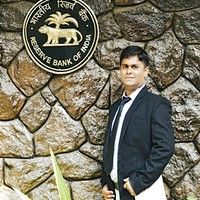 |
Name: | Naveen Kumar Singh | ||
|---|---|---|---|---|
| Exam: | RBI Grade 'B' 2014 | Rank: | 30 | |
| Attempt | 1st | Year | 2014 | |
| Education | Masters in Financial Engineering | Current Job | RBI Grade 'B' officer | |
| Question | Answers |
|---|---|
| Do you Rely on Books or Internet | I referred to internet to solve mock tests and most of the books were downloaded free from the internet too. |
| About the Exam | It is a 3 stage exam which eliminates applicants as follows : 2 lacs -> 2800 -> 600 -> 134 There is a relatively strict barrier of eligibility in form of CGPA cutoff so anybody with less than 7 CGPA should check notification carefully. |
| Prelims structure and questions |
200 one-mark objective ques to be answered in 120 minutes. Paper comprises of 4 sections - GK (80) + Quant (30) + English (30) + Reasoning (60). There is an overall cutoff as well as section-wise cutoff. This year the overall cutoff was 88.75 and section wise cutoff was 25% in each section. There is negative marking of .25 too. |
| Preparation strategy for General Knowledge in prelims |
GK - the least time consuming section and (to many engineers) the toughest. Almost 80% of the questions asked are current affairs based. At least 70% questions were economy/banking based. This is completely different from civil services prelims as the questions asked here are extremely factual in nature and rote learning is the key. But as current affairs predominates so preparation can be made methodical. Most of the people read ''capsules'' of Bankers Adda but I didn’t read them. What I instead read (and which I would very strongly recommend) are the current affairs monthly magazine of past 12 months of Kiran Prakashan's Banking & Current Affairs Update. I made separate hand written notes of each section of current affairs and kept on revising them even on the day of exam (outside centre :P)! Out of 80 question at least 30-35 questions were directly from my notes! Pay special attention to - important days, personalities, awards, sports and books section. |
| Preparation strategy for English in prelims |
English - the cake-walk section of exam. Usual vocab and grammar questions apart from comprehension and the dreadful para jumbles. Out of 10 questions of comprehension 4 are vocab based which can be answered even without reading the passage!
I usually didn’t read passage in any of my mock tests and attempted the rest of 20-21 questions. Para jumbles were insanely time taking and only if you can crack the correct sequence completely you can answer them, so I decided to leave them in mock tests. My advice to those who have time - practice para jumble and crack them! |
| IBPS PO Preparation Tips for Reasoning Section | Reasoning - personally the toughest part of the paper. The key is to sufficiently practice each type of questions. 75% questions are asked in groups and its difficult to recognize the easy group from the tougher ones. However I found the data sufficiency, syllogism, coding-decoding and assumption-inference the easiest of all. On the other side I found the input-output, blood relation, seating arrangement (and its variants) to be comparatively tougher. I think this section requires more sustained practice than even quant. I practiced from A Modern Approach To Verbal & Non-Verbal Reasoning (English) Revised Edition - Buy A Modern Approach To Verbal & Non-Verbal Reasoning (English) Revised Edition Online at Best Prices in India - Flipkart.com |
| Preparation for Quant for the Prelims |
Quant - the most crucial section. It decides your selection as scoring 25% can be a challenge! Even an IITian friend of mine could not score the bare minimum 25% this year!! The questions are time consuming. 4 DI (data interpretation) caselets were asked this year which covered 20 questions which is unprecedented as earlier only 15 questions were asked in 3 DI caselets. So take any CAT preparation book and practice hard keeping in mind the time limit as the questions asked are of higher difficulty level as compared to CAT. |
| Tips for the Prelims exam |
Time management - this is an elimination round. Even if you are AIR-1 in prelims it doesn’t matter. Hence the more logical thing to do is to give equitable time to each and every section. Remember - failure to clear even one sectional cutoff and you are out of the race. Even though 2800 people eventually clear prelims, atleast 4000 people must have cleared the overall cutoff but couldn’t progress because of bad score in quant (and sometimes in reasoning). Hence ordering of sections to attempt becomes very important. I do not advocate any particular ordering but I am writing my order of sections. |
| Tips for the Prelims exam |
I started with GK and my effort was to complete GK + para-jumbles in 30 minutes. Sometimes when GK itself took 30 minutes then I would leave PJ otherwise GK+PJ in 30 minutes. So now 90 minutes left for 115-120 ques. Then I would attempt the non-DI part of quant in about 20 minutes. So 70 minutes left for some 100-105 ques. Then I would attempt the whole reasoning section in one go. This took 55 minutes (I never attempted more than 45 question in reasoning). So now I am left with 15 minutes with 25 questions from english and 2-3 DI caselets of quant. I would complete 20 english questions in 8-10 minutes and would choose the easier of the DI caselet and solve as many questions in it as the time permits. Bottomline - don’t waste your time in any one section. Given the time one can solve all the quant questions and both the PJ and comprehension but that would be a foolish thing to do when you are weak in reasoning section (like I was). So find your strong and (more importantly) weak areas, work on them, convert them to your strong points but if that’s not possible then leave questions from these areas in exam. |
| Prelims Score |
|
| Mains strategy | There were 3 papers in mains, all conducted on same day - Economy and Social issues (ESI) + English. Each paper was worth 100 marks and maximum time allowed was 90 minutes. Read one business newspaper, Economic survey as critical questions were asked from it. |
| Interview strategy |
Interview is worth 50 marks. I did not prepare anything for interview and rightly so didn't get good marks in it, so I won't be writing about it. Though I am attaching my interview transcript so that people can get an idea of the sort of questions asked. I was the third person to be interviewed that day. As soon as I entered M1 quipped that people go to IIM for MBA and you went to IIM for internship. I nodded sheepishly. Then I greeted everyone. Chairman : what is financial engineering. I could not define financial engineering but I started with what the course was all about and what was the curriculum structure. But he cut me short and said that he wanted me to define financial Engineering which I wasn't able to. Then M1 asked me how to use financial engineering in a company? I told him that I can do the analysis of its balance sheet and look at it stock and determine its future prices. M1 again interjected and said that this can be done by any m com graduate. Then I told that at IIT we were taught the quantitative aspects of Finance very rigorously. To this the chairman said that where in India is finance not taught in a quantitative manner. I paused and then replied that it is just a name of a course. M1 : How can you use financial engineering in a company? Answered. Chairman : what is financial re-engineering and how can it be used in RBI? I answered satisfactorily. M1 : you could have gone to investment banking why do you want to join RBI? I gave the usual answer. M1 : what was the role of financial engineers in the 2008 global financial crisis? I answered. M1 : what was the 2008 global financial crisis? Answered, fumbling as he expected me to answer in purely technical terms. As a follow up question he asked why it cannot happen in India. To this I initially told that our fundamentals are strong we have SLR we have CRR but manager intervened and said that this is available in every other country What is so special? I replied that we have a professional institution like RBI managing our banking sector and our banks have good capital adequacy ratio. He seemed satisfied. M2 : You qualified ACET exam so why didn't you take the other actuarial qualifying exams? I answered. But he prodded. So I told him that I will attempt the exams once I join the RBI. To this the whole room had a hearty laugh : D M2 : so you are a statistician. You have a good record in statistics. (thank you sir). Tell me what is inflation expectations. I was beginning to reply in lay man term. But then he asked me what is the statistical model behind inflation expectation. I told him that I am not able to recall it at the present moment. M2 : what is deflation and what is inflation. Answered. What is more dangerous? Answered. Which countries are facing deflation and what are they doing to move out of it? Answered. Why is deflation more harmful tell me by an example. Answered. He seemed satisfied. M3 : what are the currency management functions of RBI? Answered. What are the factors which RBI take into account to determine the amount of currency to be printed? Answered. what is counterfeiting currency is it law and order problem or the problem of RBI? Answered. Why do we blame Pakistan for all the ills that happen in India? Defended. Recently Pakistan allowed its cricket team to come for World T20 tournament. I appreciated the move over which he asked - then why are you saying that relation between India and Pakistan are not normal? Defended by bringing in inability of Pakistan to prosecute terrorists. Then chairman asked that like Hafiz Saeed in Pakistan Arnab Goswami in India also advocates Anti Pakistan stand so should he be prosecuted or not. Of course that was a stupid question and I defended my position well. After this they told me that your interview is over and now you can leave. Edit 1 - After looking at the mains exam marks and interview roll no. of about 100 of the selected candidates (we have tabulated it neatly) I have deduced that you can get a fair idea of your mains exam marks just by looking at your interview roll nos.!!! The roll no. for prelims and mains exams are the same however RBI changes your roll no. when it gives you interview letter. For a particular interview location the roll nos. are arranged in the descending order of marks in mains exam. So suppose there are 15 people called for interview on a particular date, the first person to be interviewed will have the smallest roll no. and the highest marks in mains among those 15 people. So now you can qualitatively know your performance in mains exam before you even face your interview! |
RBI Assistant Toppers
 |
Name: | Rahul Pratap Singh | ||
|---|---|---|---|---|
| Exam: | RBI Assistant | Rank: | N.A | |
| Attempt | --- | Year | 2013 | |
| Education | Harcourt Butler Technical University, Kanpur | Current Job | Divisional Accountant at Comptroller and Auditor General | |
| Question | Answers |
|---|---|
| What is your tip for beginners ? | The first and the foremost step for RBI Assistant Mains Preparation is to make a proper study plan for studying and stick to it. Go through the RBI Assistant Mains syllabus provided here carefully. This will help you to gauge the topics likely to be asked and will help you in RBI Assistant Mains Preparation. Next thing for RBI Assistant Mains Preparation is to practice as many mock tests as you can. |
| Preparation of Current affairs for prelims and mains | Give ample time to build rock solid base in maths and reasoning. Get yourself acquainted with banking awareness and current affairs. Start reading any daily newspaper and make habit. |
| RBI Assistant Mains Syllabus for Reasoning Section |
|
| RBI Assistant Mains Syllabus for English Section |
|
| RBI Assistant Mains Syllabus for Quantitative Aptitude |
|
| RBI Assistant Mains Syllabus for General Awareness | A total of 40 questions will be asked for 40 marks from the following topics:
|
| RBI Assistant Mains Syllabus for Computer Knowledge | A total of 40 questions will be asked for 40 marks checking your basics of Computer. |
| Tips for Cracking Prelims | Then comes the most important and deciding factor which is PRACTICE. Do lots of lots of mock test and analysis or the mocks is also important as it helps you to find weak areas. Pick up weak areas and work on them . Keep track of mock scores and try to improve gradually over a span of time. Once you start hitting required scores in mocks then you start getting selection. And once you get in one bank exam you clear all in a row so keeping the momentum is key. So start preparing and be ruthless in exam. |
| Interview tips | From 2016 onwards no interviews shall be conducted. |
 |
Name: | Tamal Kumar Das | ||
|---|---|---|---|---|
| Exam: | RBI Assistant | Rank: | N.A | |
| Attempt | --- | Year | 2015 | |
| Education | Studied at M.G.Science Institute | Current Job | Works at Reserve Bank of India | |
| Question | Answers |
|---|---|
| How did you prepare ? | Every day I used to solve at least one paper. I always gave myself 1 hour 45 mins to solve paper. I had decreased time because it helped me in increasing my speed. Now after solving each paper I used to check my paper and analyze it carefully. My analysis consisted mainly 2 things. The questions which I was not able to solve and the questions which I solved but was wrong. Now for the questions which I was not able to solve, I used to see the solution and practiced the similar kind of questions from books like R.S.Agarwal. |
| Preparation tips for prelims | Questions in which I was wrong I used to find my mistake and write them down on a paper. Then every day before solving a paper I just went through those mistakes so that I don’t do them again. This highly increased my accuracy. Sometimes we make very silly mistakes, you should also write them down because it will not only cost you negative mark but also 1 mark which you would had scored if you did not made that mistake. So please maintain your accuracy. I used to complete this process until 3 pm then I took a bit rest and later used to practice different topics which I felt were hard for me. This generally covers all your topic which are reasoning, quant, English, banking and computer. |
| Other advice | We all know in this kind of exam you cannot attempt all questions as you have to pass in all the sections. So, if you attempt at least 70 percent questions in each section it would give you an edge. Hence, you can leave some questions. So make two list of questions .One will consist of easy questions which you can solve in 1 to 1.15 min. First attempt these questions in each section. And move on to other section. |
| RBI Assistant Mains Syllabus for English Section | Give 40 - 40 mins to Quant and reasoning, 20 min to English,10 mins to current affairs and 10 mins to computer. In the same way you can devise your own strategy which is best suitable for you.Paper will be easy normal ibps clerk level but competition is tough. So I think 160 would be a good score to get selected |
| RBI Assistant exam information |
Important Exam Information
|
| What not to prepare | Topics to Ignore in Quantitative Aptitude
|
| RBI Assistant Mains Syllabus for Computer Knowledge |
In this section question are asked from topics related to Basic of Computers, Computer Organization, Generations of computer, Input & Output Device, Shortcuts & Basic knowledge MS word, MS Excel, MS power point, Memory Orientation, Internet, LAN, WAN, Modem, Computer Abbreviations, Modern day Technology. Candidates can easily score in this sections because syllabus is not so vast. Questions ask on operations which a persons generally done on computers. This part is less time taking also so it can help in solving more no. of questions in Reasoning & Aptitude |
GATE Toppers
 |
Name: | Sanket Purandare | ||
|---|---|---|---|---|
| Exam: | GATE | Rank: | AIR 25 in Gate 2016. | |
| Attempt | --- | Year | 2016 | |
| Education | --- | Currently At | Indian Institute of Science , Bangalore | |
| Question | Answers |
|---|---|
| What is your tip for beginners ? | Preparing for Gate requires hard-work and dedication. There are no shortcuts. |
| preparation strategy |
|
 |
Name: | Anshul Tiwari | ||
|---|---|---|---|---|
| Exam: | GATE | Rank: | AIR 72 in Gate 2016. | |
| Attempt | 2nd | Year | 2016 | |
| Education | Btech Mechanical Engineering, National Institute of Technology, Tiruchirappalli (2014) | Currently At | Executive trainee at National Thermal Power Corporation | |
| Question | Answers |
|---|---|
| Is it difficult to get 75 or above marks in GATE within 1 year? ? |
1 year that’s too much. You can secure above 80 marks in GATE ( in mechanical engineering) if you are sincere with your studies for 7–8 months ( not sure about other branches though). First of all you should do a thorough analysis of the exam. I am doing it for mechanical engineering here.
First of all these are not exact marks they vary from set to set so does the difficulty level. Hence it is a general overview of the paper. |
| How can i get 80 marks? |
Well if you look at the point 1,2 and 3 you can make it out that those three subjects should be given priority otherwise you are doomed. I got 15/15 in (apti+eng), 9/13 in maths, 13/16 in production. Approx (37/44) but then in Tom,Som and Fluid hmt i got (31/35) (all are approximate calculations). But again one should analyse his strengths and weakness and then choose accordingly i was not so good in english until march 2015. But now i am quite comfortable with it ( got 83/100 in ESE 2015 and 75/100 in ESE 2016). |
| How can i get 80 marks? |
Well if you look at the point 1,2 and 3 you can make it out that those three subjects should be given priority otherwise you are doomed. I got 15/15 in (apti+eng), 9/13 in maths, 13/16 in production. Approx (37/44) but then in Tom,Som and Fluid hmt i got (31/35) (all are approximate calculations). But again one should analyse his strengths and weakness and then choose accordingly i was not so good in english until march 2015. But now i am quite comfortable with it ( got 83/100 in ESE 2015 and 75/100 in ESE 2016). |
| Apti and English? |
Being an engineer you are expected to be good in aptitude and yeah you have the luxury of using a calculator too(though i never used it). If you are not good in apti you should try to solve previous year paper of gate for all the branches as this part is common. Go for basic books like R.S.Agrawal and made easy notes you can also go through video lectures in youtube. But you should be comfortable in handling apti ( easy bearing fruit don’t lose on this). English is a very funny language isn’t it,not for us right? We all did our engg in english for 4 years but we are not comfortable with it Are we? Ok enough of pun coming back to the point. English consists of vocab part and grammar part. There is a saying “Vocab can’t be built in a day”. One stop solution for vocab is WORD POWER MADE EASY by Norman Lewis yeah the book with the red cover small and thick. I read it twice or thrice from cover to cover. Believe me guys if you read it thoroughly you will feel quite comfortable with the words asked in gate, be it altruist,martinet or any other word. This book is a must read you can compliment it with reading The HINDU daily ( if you are an ESE aspirant) jot down the difficult words and find out their meaning. Editorials will help you in improving your grammar skills. For grammar there are around 100 rules given in Hari mohan prasad book solve it, try to remember the rules (you can’t mug it up) but if you do practice them you will remember it. One of the reason I practiced it extinsively was- I was a serious ESE aspirant it helped me with english as well as current affairs ( secured a decent 148.88/200 in General ability). I mugged up 3000 words of GRE using “MEMRISE” app. But it is redundant for GATE. Made easy material for english is very good and it will suffice. Having a superior vocab will not only help in GATE but in exams like CAT,SAIL,CSE,SSC-CGL so cost to benefit ratio is high. If done once you will remember it forever. |
| Maths? |
It is very easy and scoring part. Solve B.S.Grewal ,made easy thick book and previous year GATE papers. Mug up all the formulae and rewrite them again and again. Engineers are good at maths aren’t we?? I am leaving it upto you for any queries you can message me. |
| Production? |
So here it is the most important technical subject of mechanical engineering carrying around 15 marks. Just one word for it “MONDOL SIR KA JUGAD” made easy guys would have understood it. For others please purchase Mondol sir’s book it is more than enough ( no further question on this point). I solved it 4–5 times mugged up all the formulae and except for 1 autocad question solved it all. Solve all the previous year questions. Most of the questions will either be same or of same type. I didn’t studied any book. Mondol sir notes + previous year ques+ test series don’t go beyond that. |
| SOM? |
Again mondol sir taught me SOM I did his notes 5–6 times. And got all the questions correct except for one mistake i did with units ( answered 84 instead of 84000 kilo mega mistake :/) . For SOM mondol sir notes and test series is more than enough. No books until you are pursuing research in design. |
| TOM? |
What i did was amit kakkar sir notes,made easy workbook, previous year gate and ese questions and test series. Give emphasis on vibrations and gears. One can refer NPTEL videos they are really very good,I referred it for CAMs. It is a difficult subject so try to understand it conceptually. I got 8/8 in TOM. |
| FM and HMT? |
FM is a difficult subject refer NPTEL if you are not in made easy. Main focus should be on boundary layer theory,laminar flow,dynamics and kinematics. Mug up all the formulae as they are confusing and difficult. HMT is easier as compared to FM give preference to heat exchanger,shape factor problems, forced convection and lumped analysis. I secured (6/6) in HMT,it was one of my strongest subject. No book needed i did made easy notes + prev year GATE and test series. Machinery can be avoided or put in less efforts in it. |
| Thermo + IC Engine + Powerplant? |
Thermo is favourite subject of most of the mechanical engineers isn’t it? In Thermo concentrate on entropy, available energy and second law problems. No need to solve PK Nag it can be read for theory only for ESE. Do solve previous year papers theoritical questions might be tricky. In IC engine just mug up diesel,otto and dual cycle formulae and questions of if heat addition is same which will have higher efficiency type question. Though this year they asked a question from oxidation reaction of fuels. Powerplant is very easy do brayton cycle and rankine cycle theory and numericals . Though compressors was added last year there were no questions. |
| Industrial? |
It is easiest of all remember all the formulae focus on PERT/CPM,Linear programming and inventory. Do solve previous year and test series. |
| Machine design ? |
It is somewhat difficult and conceptual understanding is required. Focus on brakes, rivetted and welded joints,clutches and S-N curve. Do solve previous year questions 4–5 times. |
| Material Science and RAC ? |
Weightage is low so no need to read them thoroughly. Read heat treatment, iron carbide in MS. In RAC vapour compression and properties of moist air is very important. You must remember formulae for specific humidity, relative humidity etc as numerical questions are asked mostly . Don’t put in too much efforts in these too. |
| Engg mech ? |
Focus on trusses, friction and rolling. It is easy if you are comfortable with physics,wasn’t easy for me worked hard got (6/6) marks in it. |
| Few other things one must do in the preparation span which i feel necessary is ? |
I got 5 job offers this year just because of my shear hard work and determination. You can watch motivational videos too in youtube i will share the links. Just give your best and leave rest upto the GOD. So guys this was my analysis of mech engg. Apti,english and maths section remains the same for all the branches. Message me or comment for any queries. All the best guys. :-) |
 |
Name: | Shashank Chavan | ||
|---|---|---|---|---|
| Exam: | GATE | Score: | 402 in Gate 2016. | |
| Attempt | 1st | Year | 2016 | |
| Education | Btech Computer Engineering, Government College Engineering, Jalgaon | Currently At | FY MTech , Computer Engineering , VJTI Mumbai | |
| Question | Answers |
|---|---|
| How to prepare for GATE |
I would like to mention the following things first :
First of all I’ve grouped the subject according to my comfort level and the understanding of them. Again I’ve sub grouped and studied them as some of the topics and concepts are interrelated. Like following : Primary Subjects :
Secondary Subjects:
Phases Phases were like
|
| How did you study? |
|
| When did you start preparation |
I have started my preparation in late October 2015 but I think it was bit late for me as as I was appearing for the first time for GATE I was little bit unable to manage the long term phase plans. |
| How many months are needed? |
Qualifying a gate is very easy if you have very good understanding of Computer Science. But if you want to rank between 1-1000 earliest is the best way I think how ever it may vary according to students! |
| Where did you read from |
|
| Is coaching needed for GATE? |
This completely depends on the student. Some need coaching to become a topper in Gate and some don’t. |
| What is the scope of doing M.Tech (CSE) |
MTech scope is pretty vast as it might be research as well as core computer science oriented. My main reasons to do Mtech are I’m very curious and passionate about CS, I wanted to improve the core subjects knowledge and wanted to do a good project and competitive programming. |
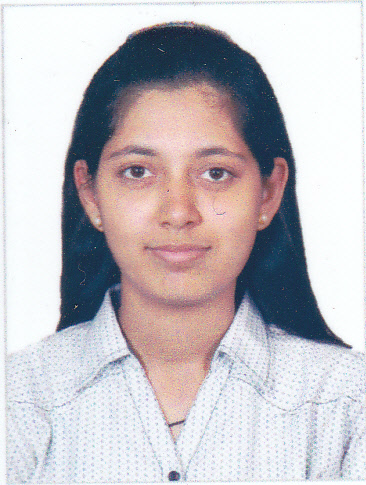 |
Name: | Sneha Shailesh | ||
|---|---|---|---|---|
| Exam: | GATE | Score: | 456 in Gate 2016. | |
| Attempt | 1st | Year | 2016 | |
| Education | B.E. Computer Engineering, Vidyalankar Institute of technology, Mumbai | Currently At | FY MTech , Computer Engineering , VJTI Mumbai | |
| Question | Answers |
|---|---|
| How to prepare for GATE |
|
| What was your daily schedule |
I did not really have a schedule. But I had maintained a target of what part of any subject was to be covered at the start of the day. My main goal was to achieve that target by the end of the day. |
| When did you start preparation |
I started preparing towards the end of VII semester of B.E., that is, in November. However, I believe that to really score well in GATE, we must begin proper preparations in our third year itself. |
| Where did you read from |
While viewing video lectures of NPTEL, I used to make a lot of notes. These notes help in revising in the 2-3 weeks prior to GATE exam. E-books of most subjects are available online, Video lectures are also available on YouTube, NPTEL videos are very helpful If a person is good in a particular subject, he can dedicate less time to it. However, they should not be ignored as well. Give more time to important subjects and try to master them as soon as possible. |
| Top institutes for doing M.Tech (CSE) |
|
MBA Toppers
 |
Name: | Garima Bharti | ||
|---|---|---|---|---|
| Exam: | CAT 2014 | Rank: | CAT percentile : 99.90 | |
| Attempt | --- | Year | 2014 | |
| Education | X- 94.6 , XII – 80.8 , B.Tech (Delhi College of Engineering) – 73.52 | Studied At | Indian Institute of Management , Ahmedabad | |
| Question | Answers |
|---|---|
| In how much time does IIM Ahmedabad announce result after interview? | Usually around 4-5 weeks from the day of the last interview. |
| How many attempts did you make and what do you think was your accuracy (approx) in the CAT 14 to get a 99+ percentile (please mention exact value)? | 89 attempts. Score: 231. My guess 80 correct and 9 wrong. Overall percentile : 99.90. Sectional: attempted 45 and 44 in quant and va respectively. Normalized score: 119 & 112. Percentiles: 99.40 & 99.85 respectively. |
| Is it possible to score 90+ percentile in cat with one month of preperation? | Yes. It is very much possible. The syllabus is class X level English and Mathematics. |
| How was your IIM interview experience? |
If Saudi Arabia cuts down production, it will loose out the market share to other countries like Russia.
|
 |
Name: | Nachiket Kulkarni | ||
|---|---|---|---|---|
| Exam: | XAT 2016 | Rank: | ||
| Attempt | 1st | Year | 2016 | |
| Education | B.Tech IT, VJTI 2014 | Studing At | XLRI | |
| Question | Answers |
|---|---|
| Academic record? |
|
| Any other achievements | Not many significant academic achievements, but extra-curricular achievements include being the General Secretary of SRA and representing India at International ABU RoboCon 2014. Also started Eklavya – SRA’s mentorship program. |
| How to prepare for MBA exam | Practice. MBA exams have questions, which anyone with a decent aptitude level should be able to solve, however solving them fast, and in the stipulated time is necessary to crack these exams. Focus on things you are good at rather than those in which you might be a bit shaky. Mocks are the key – CAT & XAT are about attempting the right questions and ignoring the wrong ones. A typical XAT paper has 70-80 questions but you need to get around 35-40 right to get a call for interviews. Therefore, if you manage to solve 50% of the paper but are 100% accurate – you should be through. This is the key. Practice mocks to identify your strengths and make sure you stay away from areas you are weak in |
| Is coaching needed? |
Not really if you are from an engineering background – there is a lot of free content available online. I referred to it most of the time. Solving books like Arun Sharma & Nishit Sinha helps a lot. But like I mentioned earlier – mock tests offered by caching classes help you to understand where you stand in the race |
| What is the scope of doing M.B.A |
MBA typically gives you a decision making position – you are given the power to decide and are directly held responsible for profits and losses you make. Other MBA jobs are more of a strategy & planning jobs. MBA certainly gives you a more powerful position than what a B.Tech would give and that is something that you think excites you, I suggest you do MBA, if you prefer more core technology jobs and are more concerned about driving innovation yourself – stick to B.Tech jobs |
| What are the streams / branches |
MBA offers a number of specializations – mainly Finance, Marketing & operations. A few colleges offer Human Resource and Systems/Information Management as a specialization |
| Which are the top institutes |
IIM Ahmedabad, IIM Bangalore, IIM Calcutta, IIM Lucknow, XLRI, IIM Indore, IIM Kozhikode, SPJIMR, JBIMS, FMS, IIFT |
| Syllabus of M.B.A exam you gave |
Syllabus is not restricted – but XAT had three sections – Verbal Ability, Decision Making & Quantitative Aptitude. VA & QT are similar to CAT and books like Arun Sharma can be helpful. Decision Making is what makes XAT special and your thinking mainly drives it – no amount of practice can help here but do look at pervious years XAT papers |
| What was your daily schedule |
I prepared for MBA entrance exams while I was working – so I did not have a well-planned schedule as such. Whenever I had time, I solved a few problems from Arun Sharma Books – I had subscribed to CetKing mocks, which I attempted on weekends. However, I feel 2-3 hours per day for 6 months should be sufficient for cracking entrance exams. As I mentioned above, these problems are nothing new, its speed and accuracy that you need to improve |
| When did you start preparation. |
I started preparing for CAT around May 2015 and XAT only a month before the exam in December 2015 |
| How many months are needed and Time taken per subject |
It is tough to answer this – each person is comfortable in different subjects. Moreover I feel giving mocks and treating these exams as a combined effort rather than individual subject helps more. I studied for 2-3 hours per day for 6 months while managing a fulltime job. |
| what are the common mistakes a student makes during preparation phase, writing the actual test and during interviews ? And how to avoid them. |
|
| If you analyse your preparation for XLRI , marks in the exam and answers given in interview which areas would you improve on. |
Preparation for XLRI – as I mentioned in the common mistakes above – I focused a lot on quant section and ignored the verbal section. The result was that I got very low percentile in verbal section of CAT but survived the verbal section of XAT. An all-round preparation would have certainly given me the confidence to crack these exams and also a better score |
| If you hadn't cleared XAT what you have done (backup exam) ? |
XAT is the back-up for CAT and CET is the back-up for XAT. If you are a graduate from a college like VJTI – I’d suggest keep repeating these exams until you make it to the top 20 B-schools in India. Other MBA entrance exams are of not much use. Had I failed XAT, I had a job and would have continued the same, while still preparing for the next year |
| Interview questions asked to you |
Mainly on my job, about my role and how it fits in and impacts the company. I was also asked about my role in SRA, VJTI and the things I worked upon. My interview was tough – it was a stress interview. I was asked a lot on US politics and their relation with US companies (since the US Presidential elections were around the corner and I was working with a US based firm) and I had no clue about these – I said I had no clue for almost 50-60% of the questions asked. Other questions revolved around my work and college life in SRA VJTI |
| Life in XLRI |
XLRI is much tougher than VJTI. It is an elaborate course packed in two short years with 7-8 subjects to study in a span of 7-8 weeks. The level of competition is also high and there is a constant pressure of failure on the backdrop of a loan of 20 lakhs. However, this is what makes it challenging and exciting. Being ahead in the competition – beating the toughest and staying ahead in the race keeps you motivated. In addition, the subjects and exams are based on real life industry level problems unlike engineering where it is mostly outdated theory – making the learning a fun experience |
Graduate Records Examination Toppers
 |
Name: | Ashish Malik | ||
|---|---|---|---|---|
| Exam: | GRE 2016 | Rank: | GRE: 329 (QA 170, VR 159, AWA 3.5) | |
| Attempt | 1st | Year | 2016 | |
| Education | Worked at Axes Studios LLP, Ahmedabad | Studied At | M.Eng. Civil Engineering, Texas A&M University | |
| Question | Answers |
|---|---|
| How did you prepare? | “No time for Mock tests”: I did not take any (of the 3) mock tests fully - I only used to attempt both the Quant sections, review the mistakes, and ultimately end up preparing for Quant only till the day ended. I’d attempted Verbal only once (that too while triple-clicking and peeping at the meaning for each of the words that were unknown to me :P ) and gotten only 20 of 40 correct. This was before I’d started preparations, so I didn’t mind it much. |
| Suggested preparation material? |
|
| Quant tips |
|
| Verbal tips? |
|
| AWA tips |
|
| On Test Day |
|